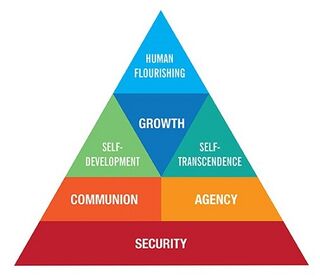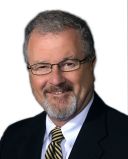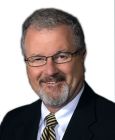Leadership
Realizing More of Your Potential in Difficult Times
Jacqueline Novogratz and Acumen show us how.
Posted July 12, 2020

Pursuing your full potential seems like a worthy goal, but it can also feel unrealistic and frustrating. Perhaps the most reasonable aspiration is to realize more of our potential by finding the most gratifying pathways toward our best possible futures.
Thinking About Human Potential
Thinking of human potential brings to mind Abraham Maslow’s old-but-still-revered hierarchy of human needs, and I described an updated motive pyramid in a Psychology Today blog post. Details are there; for the present purpose, the main differences between the old and new hierarchies are:
1) At the peak, human flourishing for oneself and others replaces the narrower self-actualization. Human flourishing is a state of complete well-being, including physical and mental health, satisfaction, a sense of purpose, positive social relationships, autonomy and mastery, personal growth, and virtue.
2) An added motive, personal agency, plays a significant role. Agency gives people freedom and power to actively seek, select, and pursue their personally-preferred pathways to flourishing.
Recently, I was pleased to find a new leadership book, one of the best I’ve read, to assign to my leadership classes. Sadly, this turned out to be a senior moment: I am semi-retired and have no students to whom to assign the book. But I can tell Psychology Today readers that it is inspiring and wise, especially for times as worrisome as these, and it beautifully illuminates the principles and possibilities of the new pyramid.
The book is Manifesto for a Moral Revolution: Practices to Build a Better World. The author, Jacqueline Novogratz, is the founder and CEO of Acumen and wrote the previous best-seller, The Blue Sweater. Novogratz provides a superb model of outstanding leadership. Moreover, Maslow’s revolutionary theorizing and my updated motive pyramid are implicit throughout.
If you’re not sure if now is the right time to cultivate your fuller potential, consider Novogratz: “[W]e have infinitely more knowledge, connection, tools, skills, and resources to tackle the world’s [challenges] than we did ... at any other time in history [pp. 4-5].” Her philosophy seems to be: If not me, who? And if not now, when?
Pathways to Flourishing
“No matter who you are,” Novogratz writes, “the world offers you a thousand opportunities for deeper success [p. 39].”
Complementing my previous publications, here are some additional routes to deeper success:
Finding and providing security
The pathways to flourishing open when lower-level needs are satisfied in the moment and over time. The foundation of security, and therefore a requirement for sustained flourishing, is access to resources — physical and psychological, financial, medical, social, and natural/geographical — sufficient to pursue one’s higher-level motives.
Novogratz and her colleagues at Acumen strive to bring people out of poverty. This mission provides security to others and opens routes by which poor people can flourish through communion, agency, and growth. In doing such work—by bringing security and empowerment to others—Acumen associates thrive as well.
Strengthening personal agency, in belief and action
Agency is the escalator to self-chosen, higher-level goals and actions. It propels communion, self-development, and self-transcendence, which, in combination, generate the broadest and most meaningful flourishing.
Under Novogratz's leadership, Acumen pursues a mission of strengthening the agency of people outside the organization, especially women lacking opportunity. Jacqueline began her efforts in the 1990s when she felt agency by noticing a problem and believing she could help make people’s lives better. Belief, though, wasn't enough. Jacqueline also exercised her agency—she behaved proactively—by initiating action, introducing herself to new people, and engaging more deeply with interested peers.
Early struggles helped them learn “to deal with ugly truths while singing songs of the possible [p. 10].” Learning how to achieve results brought stronger agency beliefs and led to even more effective action. Rwanda, where Novogratz started, now has the highest percentage of women parliamentarians of any nation.
Pursuing communion via self-transcendence—doing right for others
Self-transcendence occurs when applying your efforts to the benefit of other people and causes. Communion—close social relationships, for instance, friendship or love—is a worthy end in its own right, but it can also help others and you flourish. Consider this uplifting headline about a beloved comedian and writer/director’s recent passing: “Carl Reiner Was Funny. But His Greatest Gift Was Letting Others Shine.”
Ms. Novogratz writes about communion and self-transcendence eloquently and often. She tells us that "a revolution of morals requires each of us to redefine success, asking ourselves whether we are doing enough to serve others, whether we are enabling others to help themselves, whether we are kind [p. 249].”
She also highlights a vital form of long-term, intergenerational communion: "[W]e stand on the shoulders of those who came before us, and others will stand on our shoulders [p. 5],” and urges us to shift our way of thinking from selfishness to sustainability.
Stretching
You might pursue agency more than communion, or self-development more than self-transcendence, or vice versa. Whatever your tendencies, consider stretching yourself by consciously adding others to your repertoire. If communion appeals more than personal agency, don’t focus so much on other people’s needs that you neglect yourself and your other motives. If individualized agency dominates, consider taking on projects that are meaningful beyond yourself. Novogratz urges us to elevate both individual and collective dignity and to serve others while benefiting ourselves.
By deciding to stretch, try new things, and seek new knowledge, you grow and flourish in domains you once thought were beyond your competence.
Leading, in the best ways possible
We (the world) must solve a severe supply/demand imbalance: too many local and global needs and not enough effective leaders. Engaging and leading others in collaborative pursuits can bring about the greatest and most profound changes.
The world is full of leadership positions filled by people performing inadequately. Effective leadership is not about exerting authority or displaying a charismatic personality but rather about launching collaborations, spotting problems and tackling them, creating opportunities, and leading constructive change. These are the activities of real leaders, not to mention the best paths to human flourishing.
As Novogratz states, “Whoever you are and whatever you do, the world needs you to lead [p. 250].”
Conclusion
Once more, in closing, Jacqueline Novogratz: “We make ourselves out of the promises that lie ahead. And we are always in the process of becoming [p. 5].” She and her colleagues at Acumen clearly feel a responsibility to contribute to large-scale, sustainable change. Perhaps feeling responsible for something is the first step toward a wiser and more robust agency. The words of George Bernard Shaw pertain: “We are made wise not by the recollection of our past, but by the responsibility for our future.”




